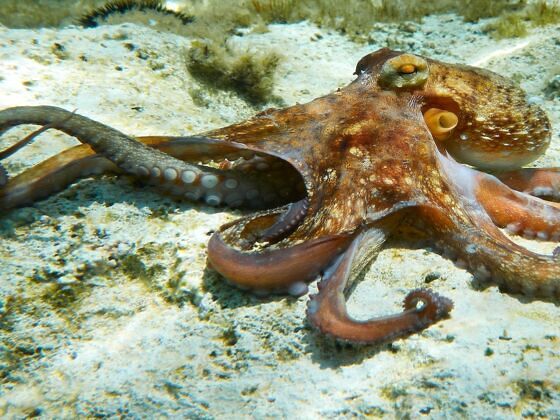Have you ever wondered how an octopus can cling to the side of a boat, grab onto rocks in the ocean, or hold onto a fisherman’s cage for dear life (as in the video below)? It’s thanks to their remarkable grip strength. From strangling prey for meals to keeping hold of objects, octopuses use their tentacles and suction cups to navigate the environment around them.

@matadornetwork The catch of the day 🐙 @brookesattar shares that the octopus held on for a bit, then let go and swam back down into the ocean 🌊 🎥 @brookesirah #octopus #pacificoctopus #octopustok #seacreatures #octopus🐙 ♬ original sound – Sickickmusic
Octopuses use suckers located on the underside of their tentacles to help them move around and find food. Each sucker contains three muscles that work together—a circular muscle, a radial muscle, and a longitudinal muscle—to form a tight seal that allows the octopus to cling onto its surroundings. When these muscles flex, they create a vacuum which helps it stick firmly in place. This same vacuum also helps an octopus hold onto its prey while it eats it.
The strength of an octopus’s grip is impressive, depending on the species, they can range from 0.1 pounds up to 15 pounds. Octopuses have also been known to open jars with their grip strength. One particular species (the giant Pacific octopus) was even able to open childproof pill bottles without much difficulty. This tenacious grip is so powerful that it’s been studied by scientists as a possible model for robotic grippers used in industrial settings.
Octopuses are also remarkably flexible creatures, being able to squeeze through incredibly small spaces because their bodies are boneless and malleable. Because of this ability, they can access areas other animals may not be able to reach due to their size or lack of flexibility. This makes them adept climbers who can scale vertical surfaces with ease, which often comes in handy when looking for shelter or hunting for food in hard-to-reach places like rock crevices or coral reefs.